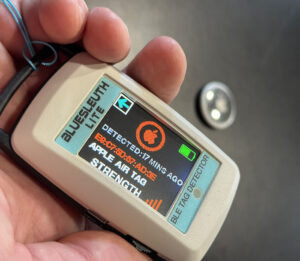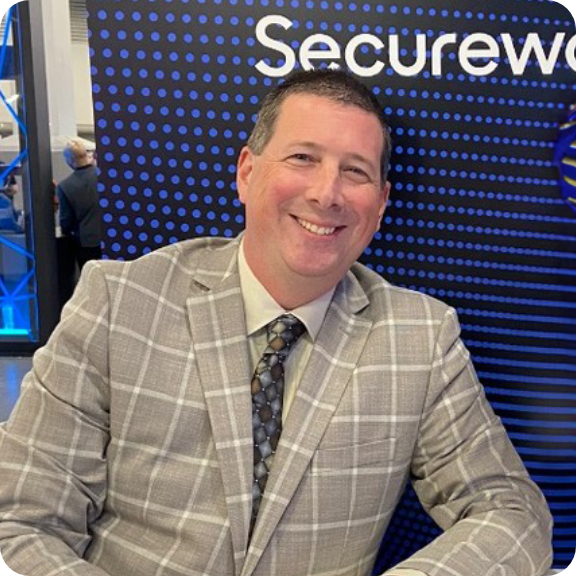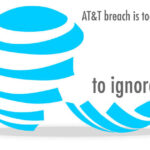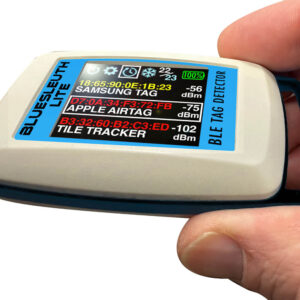Your cart is currently empty!
Executive Protection has a new weapon in its arsenal
|

There are roughly 250,000 CEOs in the United States. That doesn’t include CISOs, CFOs, VPs and of course, an array of other very important and wealthy people. That’s a lot of attack surfaces as we say in the cybersecurity biz. You might think you know why a cybersecurity expert like myself would even be writing about the protection of wealthy business people, influential politicians and famous celebrities, but you’d probably be wrong.
In the world of executive protection, car chases, fist fights and guns blazing are only a last ditch effort and should never be considered unless there are no safer alternatives. Protecting the privacy and safety of any high-powered individual is all about avoiding unsecured situations and people. It’s about prevention. Before we discuss any solutions, we need to first define the problem.
Headlines would have us all believe that criminals are content with hacking the accounts of famous people in order to steal a few compromising photos and hold them for ransom. There’s no denying that Jlaw’s nude photos would’ve been easy money for criminals that hacked her iCloud account back in 2014 had they not been caught. But there are lesser known criminal schemes that can pay off by orders of magnitude more because they also involve a breach in the physical privacy and safety of highly sought after targets.
Famous people stay famous by engaging with their public and fans. This means more than just accruing as many Insta followers as they can. It also means public appearances, late night parties and press junkets physically spread all over town and beyond. The same goes for prominent dignitaries, powerful executives and sports stars. Only their trusted inner circle of bodyguards, representatives and assistants know where they are headed at any given moment, but they might not be the only ones.
Up until recently, physical stalkers had two choices: follow an important individual around all day to determine their regular routines or slip a GPS tracker onto their vehicle and follow their car digitally. The former involves a lot of time and there is always the possibility of being made (industry term meaning caught following someone). The criminal drawbacks of a GPS tracker involve a traceable user account and a typical battery life of only a few days. But tiny trackers have recently emerged that give new life to creepy and dangerous stalking. Devices such as Apple’s AirTags and Tile’s Trackers are small enough to slip into anyone’s pocket, bag, or outside of their vehicle. Moreover, such devices can track the whereabouts of anyone in the world in real time for a full year due to their highly efficient BLE (Bluetooth Low Energy) technology and one year battery life.
In 2022, famous Sports Illustrated swimsuit model, Brooks Nader, was tracked by someone while walking home from a local bar. She never learned the identity of her stalker but they were watching and following her thanks to the AirTag they slipped into her purse earlier that evening.
If one is inclined to stalk, all one would have to do is briefly gain access to the target’s clothes, bag, vehicle or any personal item in order to quickly place the lightweight (about 4 ounces) tag. Once the tracker is planted, non-stop surveillance can begin. By now you may be thinking that tech giants like Apple and Google have already solved this problem, but they haven’t. AirTags do not notify iPhone users that they are being tracked by a hidden tag until anywhere between 3 hours and 3 days. A lot can happen to our personal safety in the span of a few hours. And that little chime that plays when the tag has been away from its owner and on the move for a while can be easily disabled. Modified, mute tags are being sold on Ebay, Etsy and of course, the Dark Web.

It seems like the deck is stacked against people who deem their privacy a prerequisite but not so fast. My company has been detecting hidden GPS trackers for years so the detection of an AirTag is only a natural extension of this technology. After a successful Kickstarter campaign, we have begun selling BlueSleuth-Lite at www.bvsystems.com and on Amazon. This $499 little wonder will detect all BLE tags (AirTag, Tile, Galaxy SmartTag, etc.) and notify the user immediately all from their pocket. The device doesn’t rely on consumer smart phones or apps. Rather, it uses a sophisticated receiver and custom antenna to not only detect any nearby BLE tag but also identify the manufacturer and even assist the user in locating the hidden tag. Many of our customers are law enforcement agents, private investigators, bodyguards and executive protection teams, but some are just regular folks who have been stalked by jealous ex-boyfriends or spouses and want to maintain their safety and privacy.
No device or security expert can guarantee the safety of any one individual, especially if their movements are being tracked by a criminal or a stalker, but there are some precautions that can even benefit those of us that can afford a full time security staff.
- Stop all contact and communication with a stalker if safe to do so
- Keep evidence of stalking (voicemails, texts, emails, etc.,) as evidence
- If someone is following you, it is generally not a good idea to go home
- Have a safe place in mind to go in the event of an emergency (police station,
place of worship, public area, the home of a friend unknown to the stalker) - Try not to travel alone. If you run or walk for exercise, get an exercise buddy
- Always try to vary your daily routes to school, work, home, etc.
- Be aware of tracking devices on your car or person especially if you
vary your routes but the stalker still seems to find you - Be aware of personal information you post online

Scott Schober
CEO | Author | Speaker at Berkeley Varitronics Systems
Scott Schober presents at cybersecurity and wireless security conferences for banking, insurance, transportation, construction, telecommunications and law enforcement industries. He has overseen the development of dozens of wireless test, security, safety and cybersecurity products used to enforce a “no cell phone policy” in correctional, law enforcement, and secured government facilities. Scott regularly appears on network news programs including Fox, Bloomberg, Good Morning America, CNN, MSNBC, NPR and many more. He is the author of 'Senior Cyber', 'Cybersecurity is Everybody's Business' and 'Hacked Again', the “original hacker’s dictionary for small business owners” - Forbes Magazine.
Our Newsletter
Lorem ipsum dolor sit amet, consectetur adipiscing elit. Aliquam mattis ligula vitae leo scelerisque, sit amet feugiat ex venenatis.
"*" indicates required fields
Latest Posts
Our Best Sellers
How can we help?
Lorem ipsum dolor sit amet, consectetur adipiscing elit. Nunc dictum aliquet justo sit amet consectetur. In tempor lobortis ante vitae ornare. Praesent feugiat magna at tempor consequat. Aenean in iaculis libero, aliquam imperdiet mi.









Leave a Reply